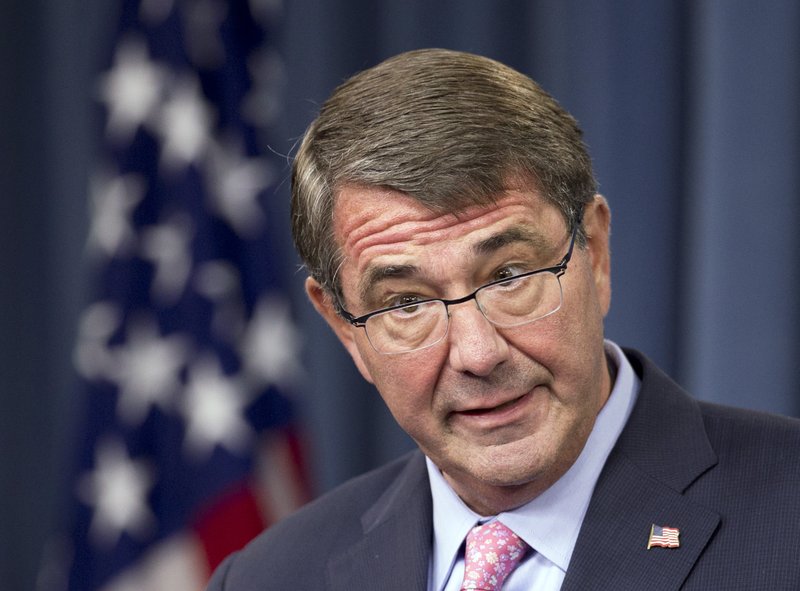WASHINGTON -- The Republican-led House on Thursday approved a multibillion-dollar defense policy bill despite a White House veto threat.
The vote was 270-156, more than enough to sustain a veto. Arkansas' four representatives, all Republicans, voted for the bill.
The $612 billion bill -- covering new ships, aircraft and pay raises for military personnel -- authorizes an increase in spending that President Barack Obama had requested, but he opposes the way Congress did it.
Lawmakers increased defense spending by padding a separate war-fighting account with an extra $38.3 billion. That account -- for overseas contingency operations -- is not subject to spending limits.
A vote is scheduled in the Senate next week.
The defense policy bill is one of the few bipartisan measures in Congress that has readily become law for more than a half-century, but Obama's veto threat jeopardizes the legislation.
The dispute is over whether Congress should break through spending caps when it comes to defense, but adhere to them for domestic agencies. Obama and his Democratic supporters say no. Republicans argued that the bill authorizes money for national security amid global threats.
Rep. Mac Thornberry, R-Texas, the chairman of the House Armed Services Committee, said the bill is critical for the troops and for national security.
"This is no time for political games," Thornberry said during House debate. "This is the time to come together and pass a bill that helps provide for the country's security. ... This is a dangerous world, and it is getting more dangerous by the minute."
Rep. Steny Hoyer of Maryland, the No. 2 Democrat in the House, said using the war-fighting account employs a strategy to "sneak around" the ceilings Congress imposed to check spending. Hoyer said the special account is handled on a year-to-year basis.
"That's why the Pentagon is opposed to it," Hoyer said. "That's why the joint chiefs believe this is bad fiscal policy for the military. ... Such an approach to funding undermines the Pentagon's long-term planning process, which is based on multiyear budgets."
The bill maintains restrictions on transferring terror suspects out of the military prison at Guantanamo Bay, Cuba; provides a 1.3 percent pay increase to service members; authorizes lethal assistance to Ukraine forces fighting Russian-backed rebels; extends the ban on torture to the CIA; and authorizes the president's request of $715 million to help Iraqi forces fight Islamic State militants.
Earlier this week, the White House reiterated Obama's veto threat. The president's spokesman, Josh Earnest, called it an "irresponsible way to fund our national defense priorities." Defense Secretary Ashton Carter also spoke out against it.
"Attempts to evade the question of overall fiscal responsibility with the so-called OCO gimmick ... is objectionable to me and to others in other agencies, and I think ought to be to the taxpayer, and certainly to the war fighter," Carter told reporters.
Majority Leader Mitch McConnell urged Senate Democrats on Thursday to vote for it.
"This is the legislation that sets out military policy and authorizes funds for our military annually," McConnell said. "It's always one of the most important bills we consider each year, but it's especially important now. The number of threats currently facing us is staggering."
Separately, the House backed a bill to block implementation of the Iran nuclear deal until Tehran pays some $43 billion in damages that U.S. courts have awarded to victims of Iranian-sponsored terror.
The bill passed on a 251-173 vote; Arkansas' delegation voted for it.
Obama has threatened to veto the bill, saying it undermines the international accord that provides Iran billions in sanctions relief in exchange for constraints on its nuclear program.
The bill, by Rep. Patrick Meehan, R-Pa., would have prohibited the president from lifting sanctions until the victims' claims are paid.
Meehan says opponents put "Iran's terror machine" before American victims of Iranian terror.
Democrats say the GOP was trying to stop implementation of the deal.
A Section on 10/02/2015
